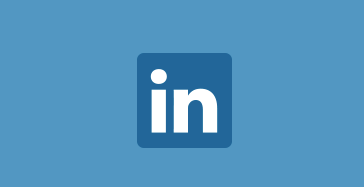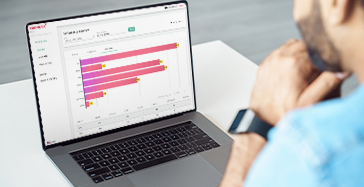Thought Leadership
The Currency that Buys Time: Automation of Guest Service Upselling

“Do more with less” became every single hotel’s motto in 2020. Thanks to the pandemic, hospitality organizations around the world were forced to take drastic measures to cut down costs in an effort to survive the crisis. In fact, globally, over half a million people were laid off or furloughed. Now as hotels open and demand returns, hotels face a conundrum. Not only are they concerned about increasing margins to recover revenue, but with fewer resources available, they are struggling to run operations and capitalize on additional revenue opportunities. That has put a focus on upselling, a high margin revenue stream but that traditionally requires an increase in labor time and effort. Automation is revealing itself to be the solution to this problem.
Upselling with fewer resources
Pre-Covid, hotel labor costs averaged roughly 50% of total operating expenses. Fast forward to Q1, 2021 and labor costs are increasing up to 5x faster than RevPAR, now consuming 60%-87% of RevPAR globally (CBRE), and thus making hotel operations nearly unsustainable for some hotels. This is compounded by the acute labor shortage in some countries.
With fewer resources than in 2019, traditional approaches won’t cut it in this new, leaner world. Hoteliers do not have the staff to invest in the mountains of daily manual tasks that existed prior to the pandemic. As a result, they need to rethink all aspects of their business to find efficiencies, while simultaneously maximizing possible revenue opportunities. The challenge, however, is how to achieve the delicate balance between cost, revenue and the customer experience. Too much focus on any one will negatively impact the others. Automation is one such solution that can effectively manage all three.
Why automation is the answer
In the absence of regular booking volumes, increasing the average spend per guest has become more important than ever in these long months of reduced occupancy. Upselling, appropriately, has recently been seen as a way to re-capture revenue. However, many properties limit themselves to upselling only at the front desk during check-in. This not optimal for more than one reason.
Typically, the guest just wants to go to his or her room, and the clerk is conscious about providing a quick and seamless service to the guests waiting in the line. In order to be successful, a front desk agent would need to have all the relevant guest data in front of them, digest it, and spend considerable amount of time in-person upselling to the guest. The reality however is upselling is a time-consuming task – and a difficult one to get right. There is only a small window of time available for front desk upselling. In that time, your receptionist can’t promote too many offers at once – nor have they the ability to complete the mental arithmetic required to offer a relevant personalized service to the guest. In such high-stress moments like this, research shows travelers have the highest resistance to spending more money. In short: this approach leaves ancillary revenue on the table and costs you not only time and labor, but your chances of guest personalization and ultimately, guest satisfaction.
Automation of guest services on the other hand can solve all of these issues in one go. By leveraging intelligent software, automation has the ability to upsell more efficiently and successfully while decreasing the labor time required by your staff to achieve the same outcome. By streamlining the upsell processes, hotels can offer timely and relevant services, enhancing the guest experience and in turn maximizing pre-arrival revenue opportunities – all the way through to check-out.
For hotels working with reduced staffing levels, automation supports the front desk in the same way other fundamental technologies do. It can increase the speed of service at the front desk allowing front desk agents not only more time to build a relationship with the guest but also allocate time to more important tasks.
Upselling: Automation is the currency that buys time
There is no question the pandemic has had a significant impact on the hotel industry, from revenue and staff losses resulting in serious operational challenges. A task such as upselling is no long manageable or practical with fewer resources. The use of intelligent technology solutions however, is the most realistic lever to pull that enables hoteliers to do more with less and maximize revenue opportunities. By automating processes hotels can operate more efficiently, enhance the guest experience while allowing what resources are available to focused on serving guests.


